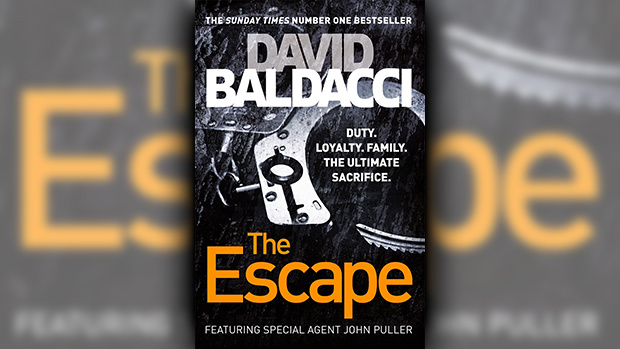Stephanie Jones: Book Review - The Escape by David Baldacci
- Publish Date
- Friday, 7 November 2014, 12:00AM

- Author
- By Stephanie Jones
With nearly one million people on the payroll, a third of them private contractors, the American government’s intelligence community has about two-thirds as many employees as Wal-Mart, the world’s largest company by staff numbers. This factoid heightens the Damoclean threat hanging over the men at the centre of David Baldacci’s political thriller The Escape, and reinforces the philosophy that fortifies the 3.2 million-strong Department of Defense: woe betide anyone who takes on mighty Uncle Sam.
Chief warrant officer of the 701st CID out of Quantico John Puller is a recurring Baldacci character, a lone-wolf Jack Reacher type whose modest professional standing belies his skills in investigation, reconnaissance and plain crime-fighting – indeed, as the story progresses, it becomes an article of faith that every theory he proposes to explain a given event will be proven correct.
A blistering opening chapter contains the catalytic event of the title, with John Puller’s older brother Robert fleeing the only maximum-security prison for males in the country. The United States Disciplinary Barracks, better known as the DB, is housed at Fort Leavenworth in Kansas and has been home to Robert Puller in the two years since his conviction for treason in relation to his roles in nuclear and cyber security for the US government.
Baldacci presents the brothers’ disparities – John is a man so inculcated in the psychology of the military and its codes of honour and loyalty that he named his cat AWOL; Robert’s brilliance marked him out as a potential future head of the National Security Agency – and explains their bond, as the offspring of a mother who mysteriously vanished and an aloof, authoritarian father who enjoyed a storied Army career before succumbing to dementia.
When the powers-that-be set John Puller on his brother’s trail, Baldacci, who has little time for subtlety, emphasizes that the mission “violates every rule the Army has”, and that if the younger Puller is operating without the proper authorizations he is subject to prosecution for “about half a dozen violations” of military law. In short, the stakes could not be higher, as investigator and fugitive simultaneously strive to evade danger and determine what precisely is wanted from them, and by whom.
Though it doesn’t get deep in the character development department, Baldacci has such enthusiasm for his premise and the world of subterfuge in which his company is embedded that you are encouraged to suspend disbelief and ride along. There are ferocious action scenes, double crosses and triple plays, inscrutable fellow agents and cryptic text messages, and lingering glances between potential romantic interests in motel rooms.
The larger questions to which Baldacci gives a passing nod – those of cyber and biological warfare and nuclear supremacy, the revived Russian spectre, what becomes of the US intelligence mission in the post-Snowden age – aren’t to be answered in The Escape, but there’s no challenging the novel’s timeliness. Only intelligence experts and epidemiologists could verify whether the dastardly plot Baldacci has cooked up, from its opening prison break to the climactic attack on the Department of Defense, could be pulled off in real life. In any case, they would surely deny it.
Take your Radio, Podcasts and Music with you

